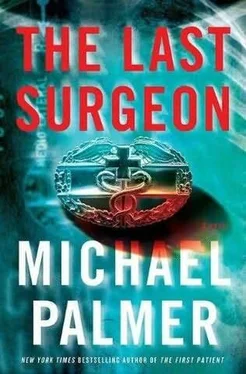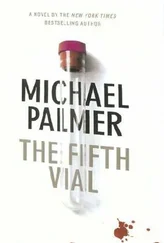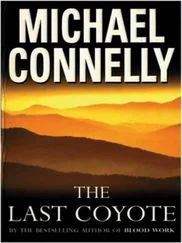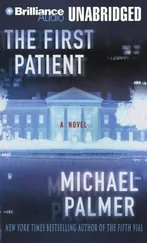“That’s fine by me,” Nick said. “We can call this the last one. But I tell you, there’s some nasty stuff going on here, Don. Take a look at these medical records.”
Nick pushed the manila folder across the desk, but Reese was clearly reluctant to review the contents.
“Do you have any idea what a sharp DA could do to us for just having these in the room?”
“Jillian will help decorate our cell.”
“Silk flowers,” she said.
“I like her,” Reese said.
“Join the crowd.”
Unable to keep his detective’s curiosity in check, Reese softened, unhooked the envelope, and leafed through the printouts. After a few minutes he locked eyes with Nick.
“Enlighten me, Nick. I got a gift B minus in college bio, so most of this medical jargon is like Sanskrit. I’ll buy what you said, that we’ve got a bunch of rubber-stamped records that have never been billed to any insurance company for reimbursement. But what does that mean?”
“It means Paresh Singh is hiding something.”
“Such as?”
“Well, that’s what we need your help figuring out. The patient IDs on these files are actually Social Security numbers. From what we’ve been able to learn, if they’re not valid numbers, the system won’t even allow the patient record to be created. But when we tried to look up these six individuals by their Social Security number, we didn’t get anywhere.”
Reese leaned back until the two front legs of his worn wooden desk chair lifted off the floor. Then he stared down at his hands, processing.
“The Singh Center would have to bill an insurance company to recoup the cost of labor and supplies, right?” he asked finally.
“That’s right,” Jillian replied.
“So technically, Singh would be out a lot of cash if he did the work but didn’t bill.”
“Well, that’s what’s even more peculiar about it,” Nick said. “It looks like they were paid for these jobs. Look, here’s the column of charges for each case, and here’s the one for receipts. They balance out. Either somebody paid for these operations, or Singh’s books have been cooked.”
“What are you suggesting? I thought you said the insurance companies weren’t billed.”
“We took advantage of the rootkit access to take a closer look at their billing and financial records.”
“Great,” Reese groaned. “Say, did you also get a glimpse of those tiny detention rooms across from our dispatch center?”
“Stick with us, Don,” Nick pleaded.
“Okay, but you guys better be ready to treat my ulcer when it erupts.”
“We did some quick math on what the average total bill for a shotgun wound to the face would be. It was anywhere between five hundred thousand and a million dollars.”
“And?”
Jillian took over for Nick. “And I had some friends at Shelby Stone who work in accounts receivable do some more digging for us. They were able to tell me how much the hospital earned from their share of the Singh medi-spa’s net profits from four years ago. If we assume these six procedures here are forgeries that generated no revenue for Paresh Singh, then Shelby Stone’s share of the take that year should have been substantially less than in subsequent years.”
“But I’m guessing that wasn’t the case.”
Both Jillian and Nick nodded.
“The profit Shelby Stone made from their joint venture with the Singh Center had to have included revenue from these six bogus procedures. At least our accounting people suggest that was the case.”
“But if that was true, then somebody, probably Singh, paid Shelby Stone out of his own pocket because no insurance company reimbursed them for the procedures. Why would they do that?”
“We agree it doesn’t make sense,” Nick said. “Maybe they were concerned some astute comptroller at Shelby Stone would notice that Singh’s supply orders and purchased inventory were significantly out of proportion with what they claimed to have earned in profit.”
“Singh buys his supplies from Shelby Stone?” Reese asked.
“Yes. It’s part of their joint venture agreement. Singh gets a good price on supplies because Shelby Stone Memorial buys their inventory in larger quantities. In exchange for that perk, and of course patient referrals, Shelby Stone takes a cut of the Singh Center profits.”
“But if somebody notices they’re buying more supplies than their profits suggest they need…”
Reese’s voice trailed off as he thought through the significance.
“It might suggest to somebody that Singh was hiding money from Shelby Stone,” Nick concluded.
“Interesting theory, but what about proof?”
“We have nothing useful at this point. And we don’t want to bag these guys on some money-laundering scheme either. We’re looking for Umberto.”
“And my sister’s killer,” Jillian added.
“So you want me to look up these people by the Social Security number on their medical records to see if I get a hit in our system?”
“You are the police. We’re assuming you have access to more resources than we do. Things that a pedestrian Google search might not turn up.”
“Supposedly, these patients shot themselves in the face with a shotgun,” Jillian said. “You’d figure somebody would have reported the incident to the police.”
Reese rose from his chair, laced his fingers together, and stretched his interlocked hands skyward until his knuckles cracked. Then he groaned and took his seat again.
“I try to remind myself to stretch every couple hours. These days, my bones have more creaks than an old mattress… Okay, you convinced me. I agree there is something going on here. I’ll run these Social Security numbers through our database. But Nick, what you guys have done, up to and including compromising their computer system, isn’t just crossing the line, it’s drawing a damn new one. And stealing medical records seems like a shortcut to both of you losing your licenses.”
“Then call us even,” Nick offered.
Reese just shook him off.
“Nah, I’m famous for my shortcuts. I just don’t want to see you get in trouble.”
Reese keyed in the patient ID from the first record on the pile. His eyes were focused and intense as he typed.
“Damn…”
Reese’s voice trailed off as his fingers continued tapping away on the keyboard, searching.
“What is it?”
“I ran this first Social several ways. No matter what, it keeps coming up classified-restricted.”
“What does that mean?” Jillian asked.
“Ever since nine-eleven, local police departments have been sharing data with federal law enforcement agencies. That cooperation has helped to nab not only a bunch of would-be terrorists, but your run-of-the-mill crooks as well. These days, if you get a speeding ticket in Orlando or a federal gambling charge in Vegas, I’ll see it here.” Reese poked his computer monitor for emphasis. “That’s how conjoined all these data have become.”
Nick thought for a beat before asking, “So, what did that first patient tell you?”
“That you guys are into some deep yogurt, my friend. I’ve never been restricted before.”
“Tough time for a first,” Nick said. “What about the others?”
Reese keyed in the next ID. His intense expression returned. Again he shook his head.
“Same thing. Classified. I’m starting to think we need to bring the captain in on this.”
“I don’t want to put you on the spot, Don, but can you wait? I’m sure you trust the captain not to sit on us, but we’re just not ready to chance it. We don’t know who is involved or what Paresh Singh is really up to. If we jump the gun, we risk exposing ourselves and perhaps losing the only link we have to Umberto and to Belle’s killer. Who do you think could have this sort of clout?”
Читать дальше












